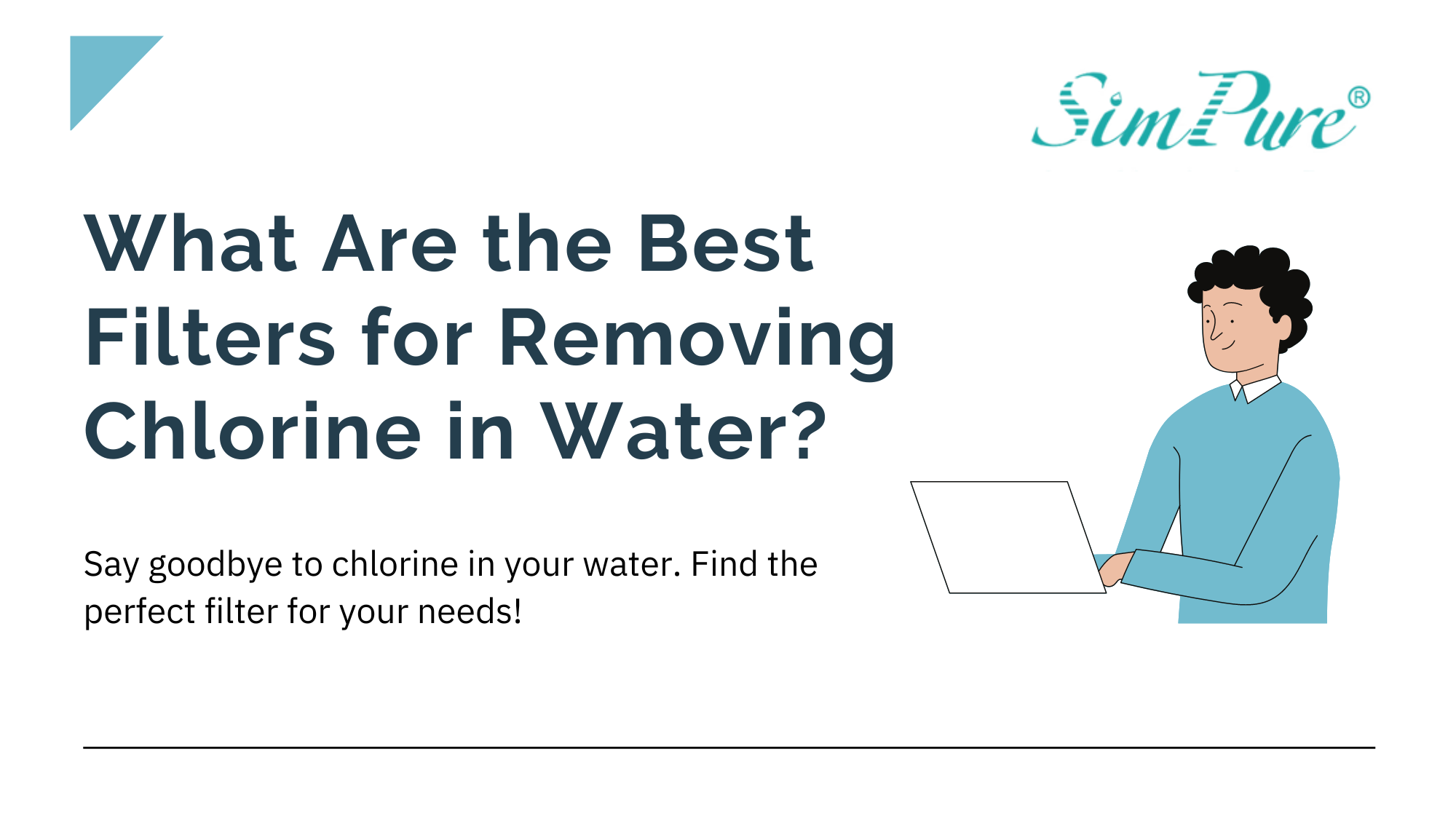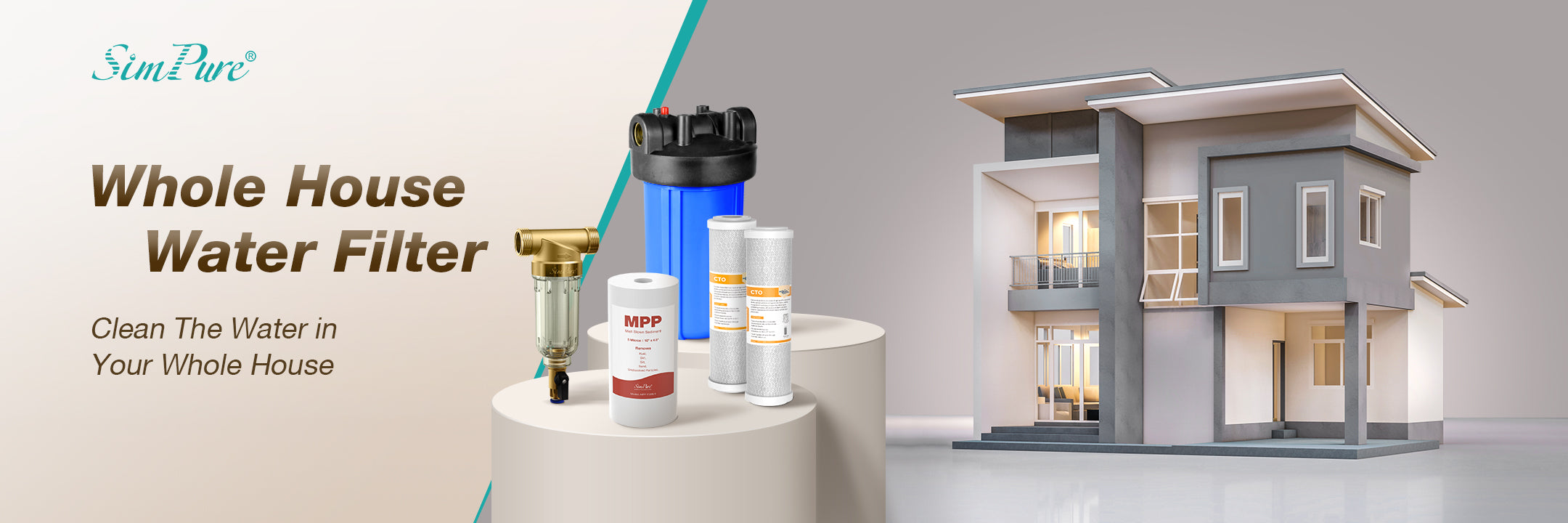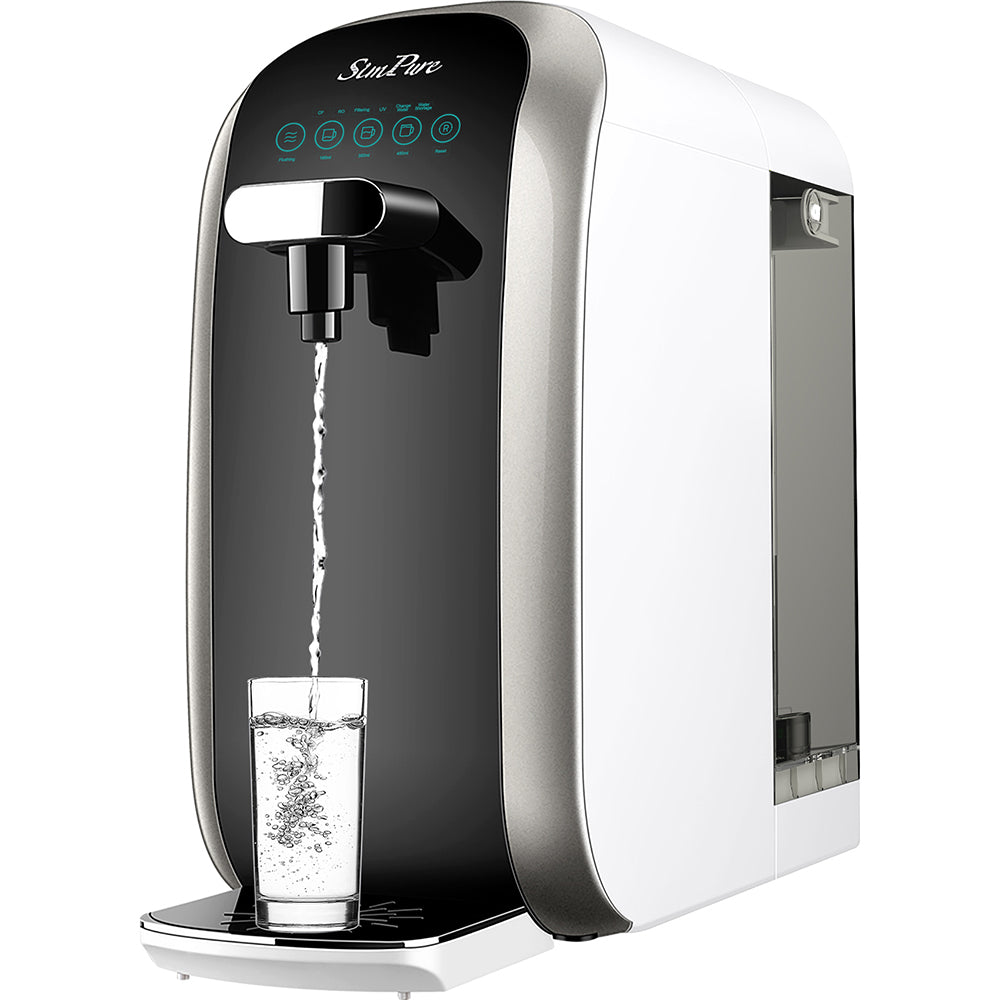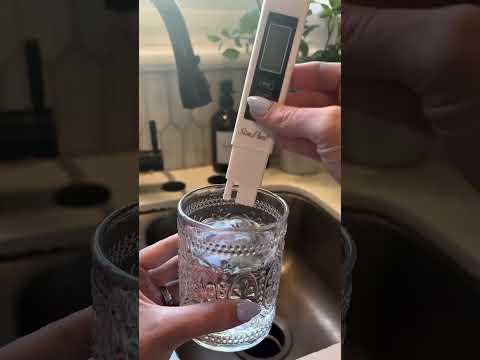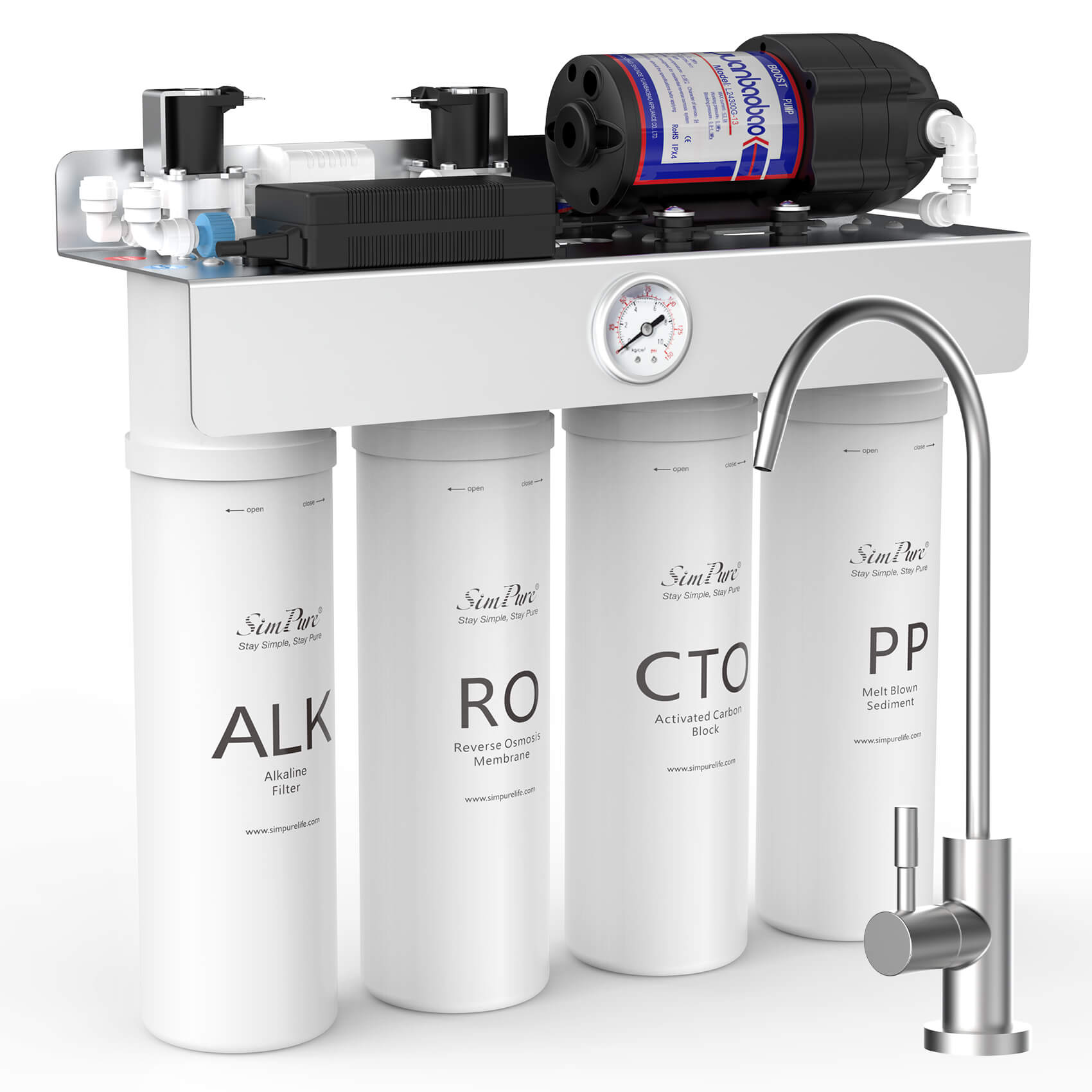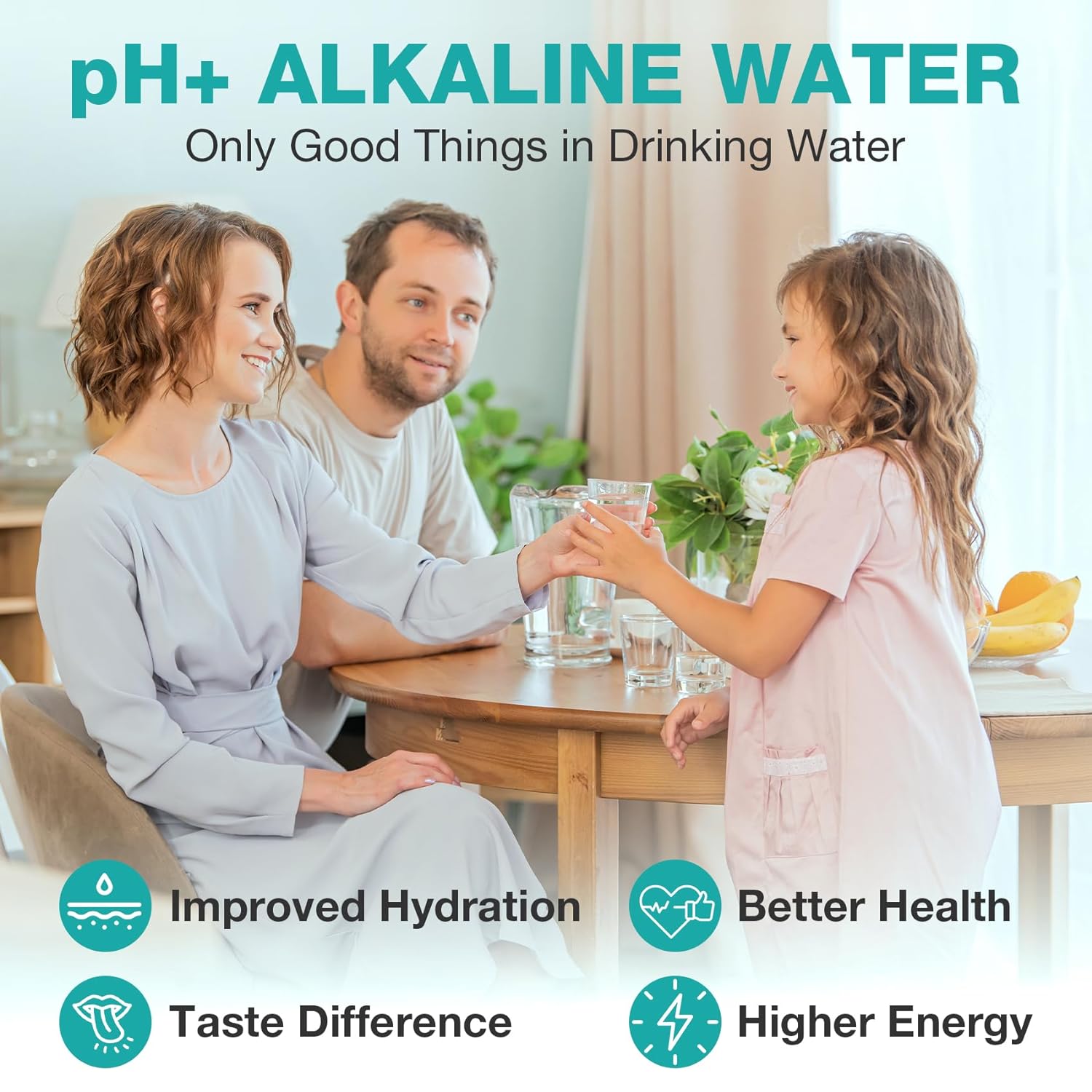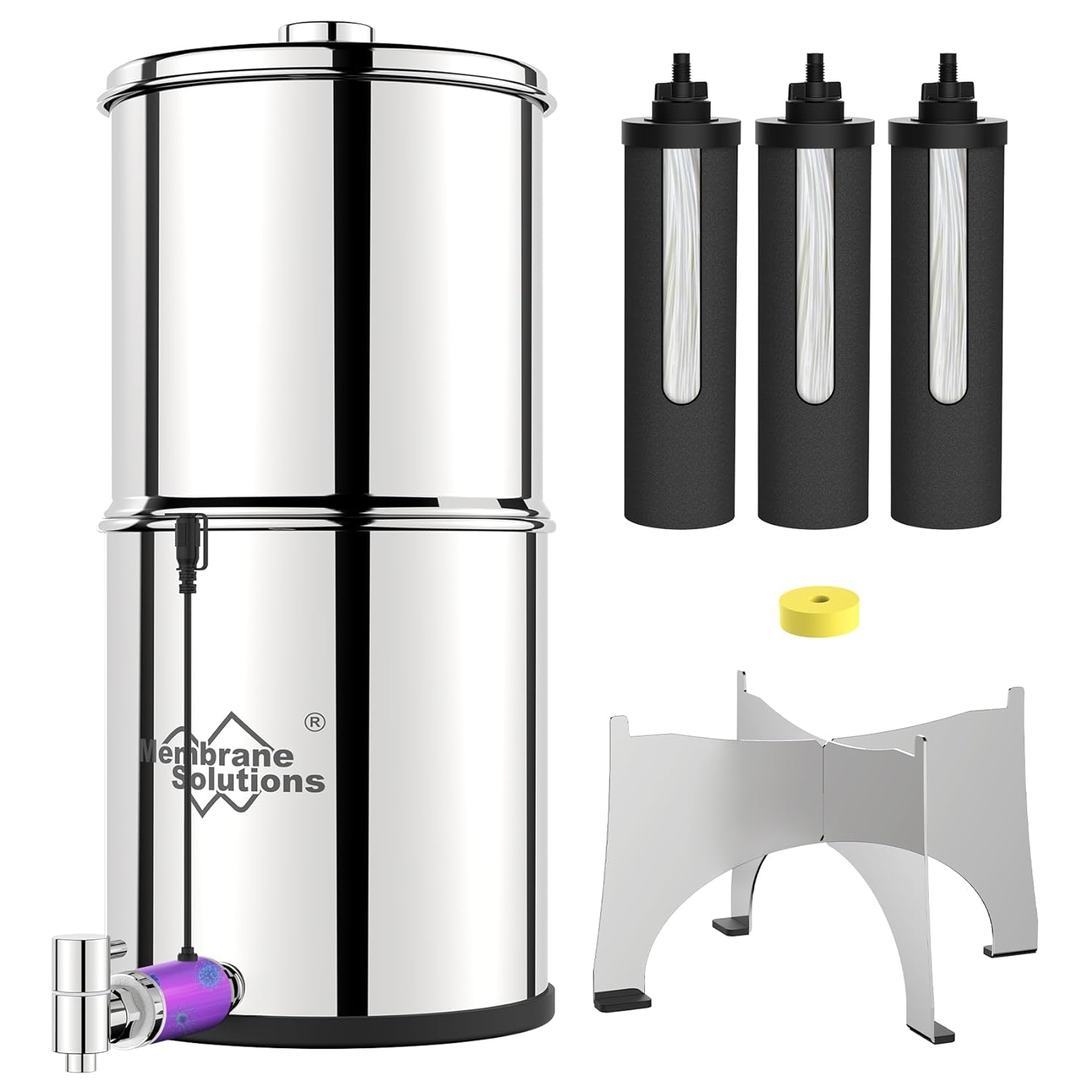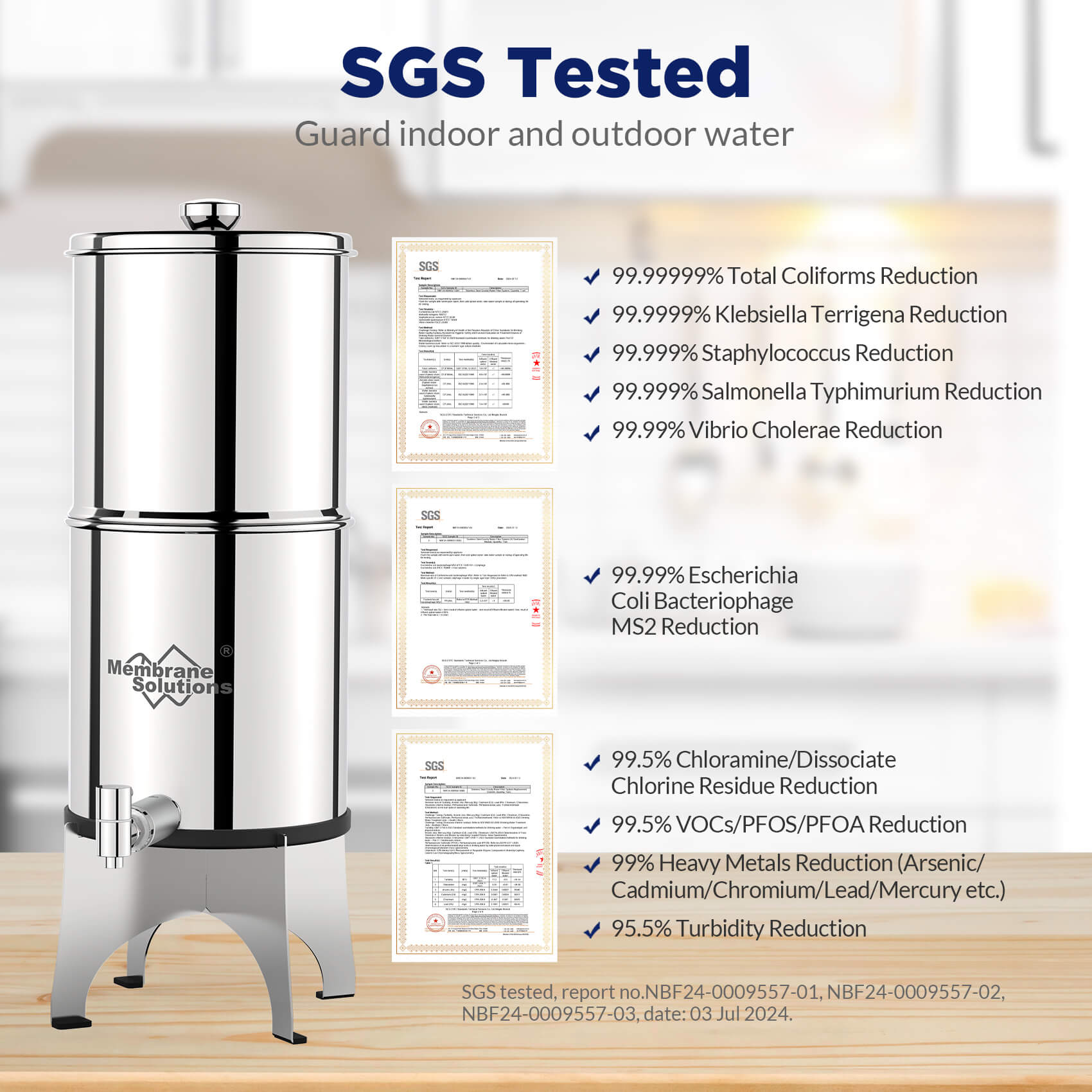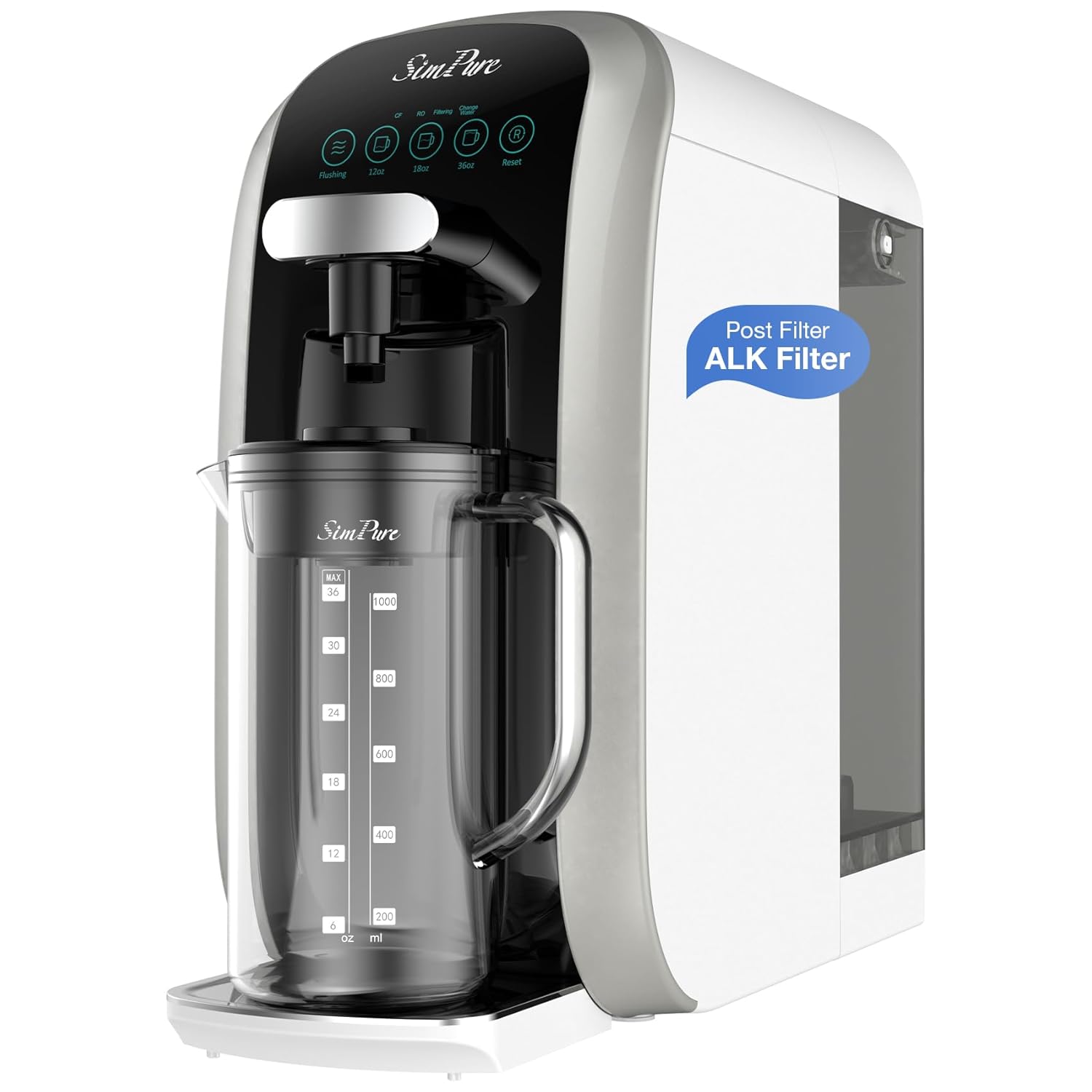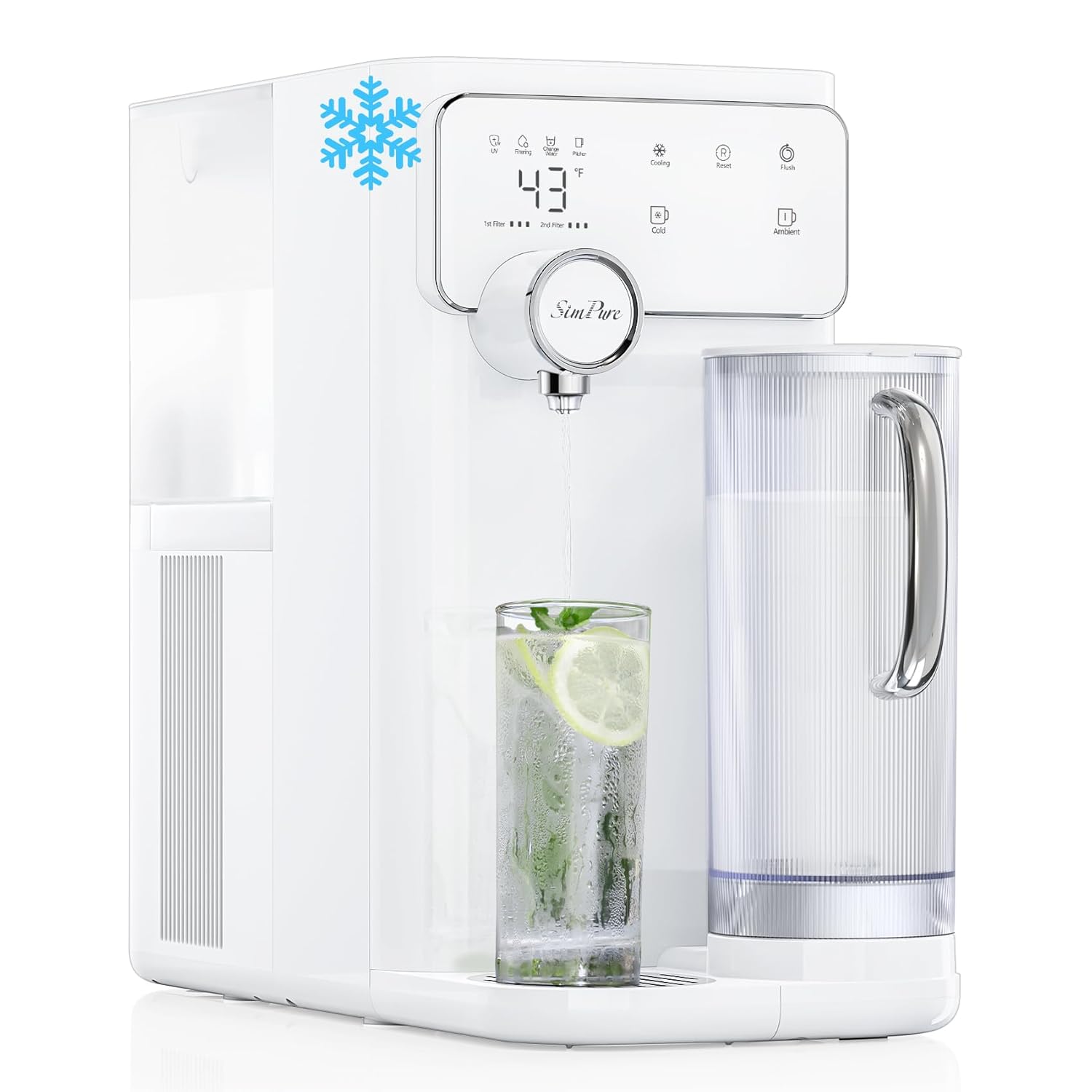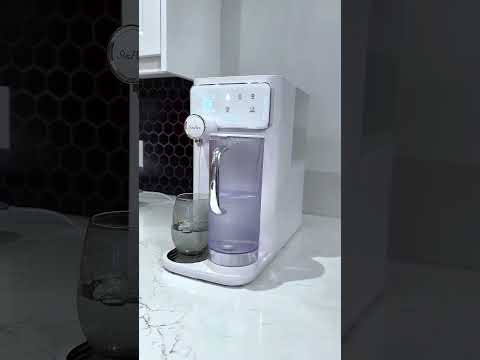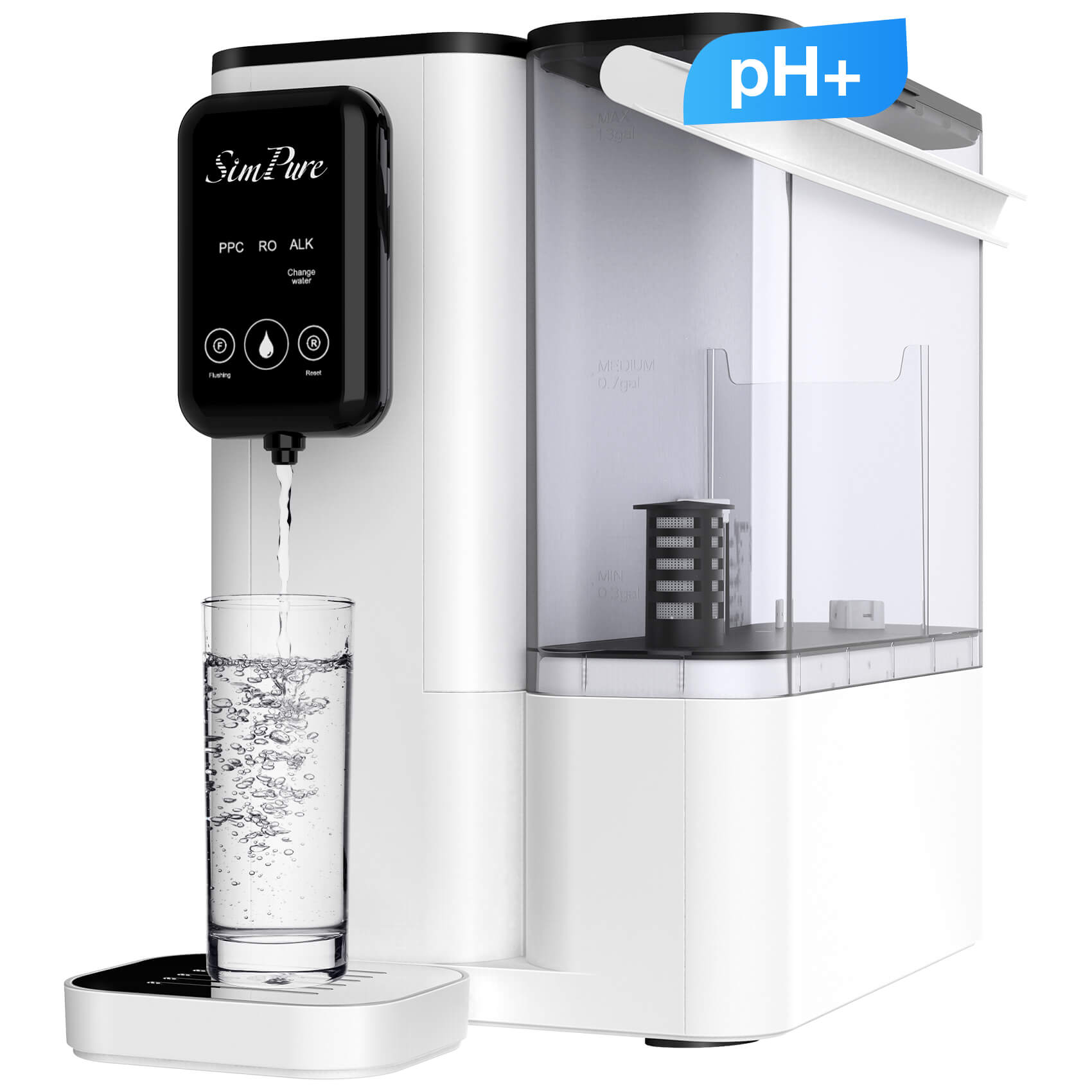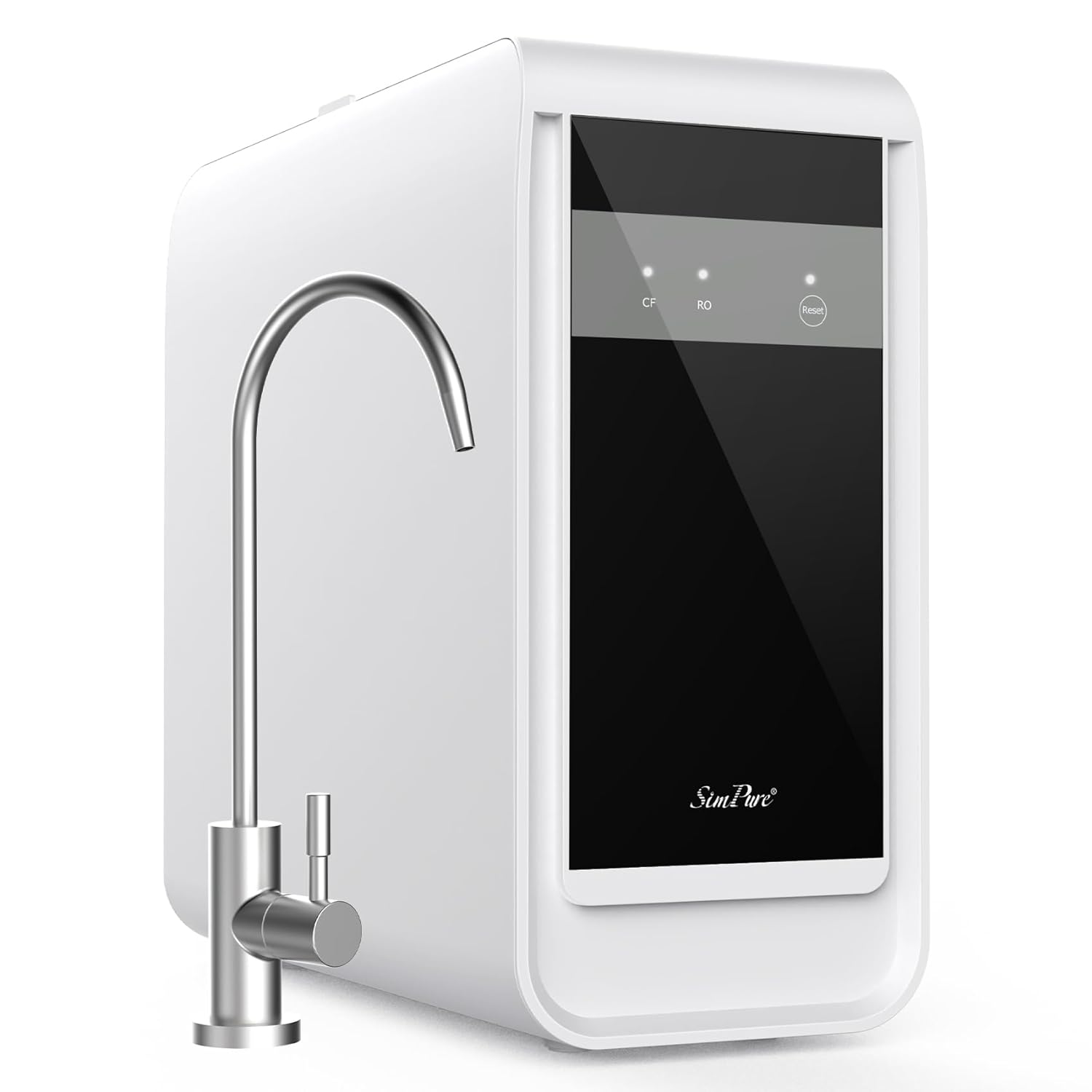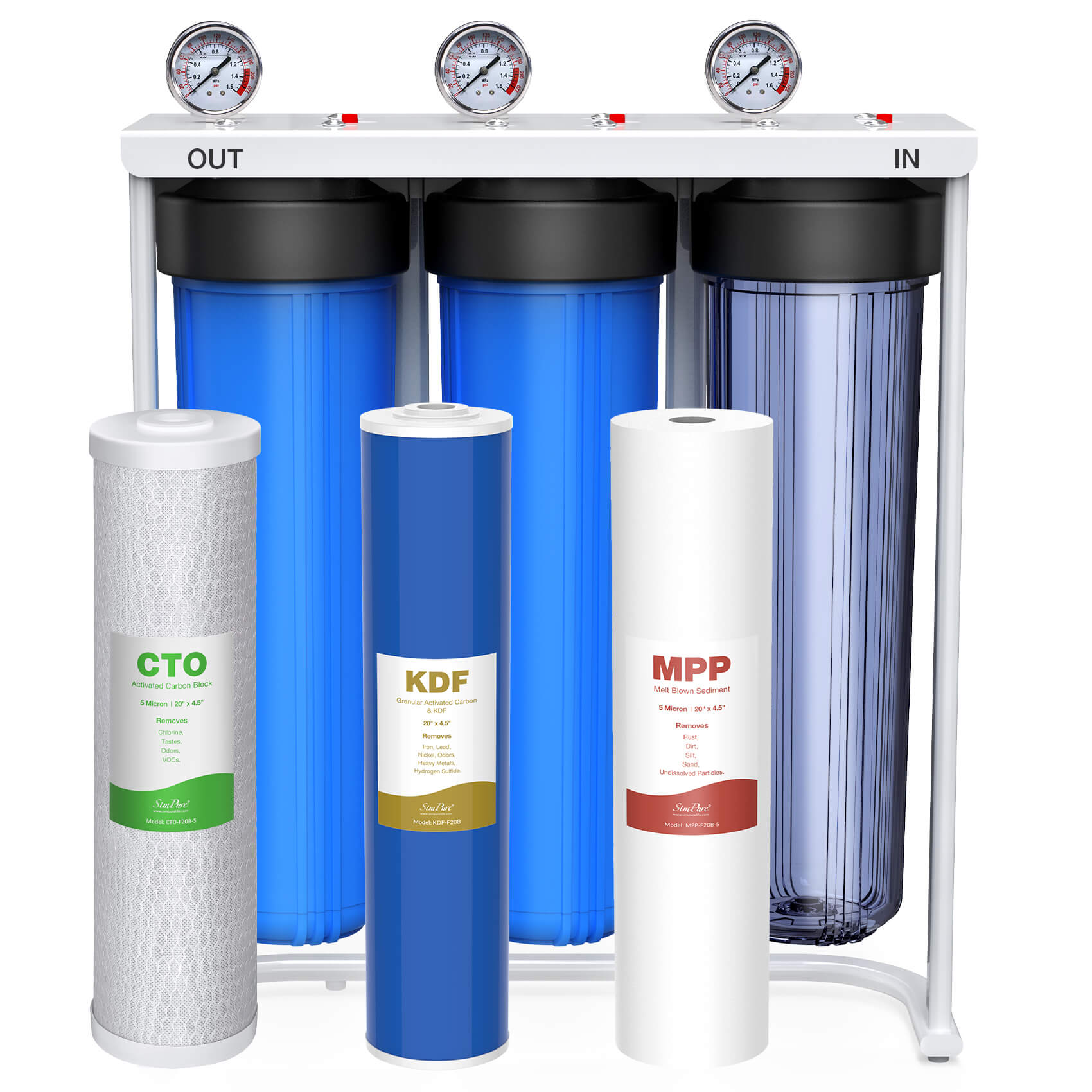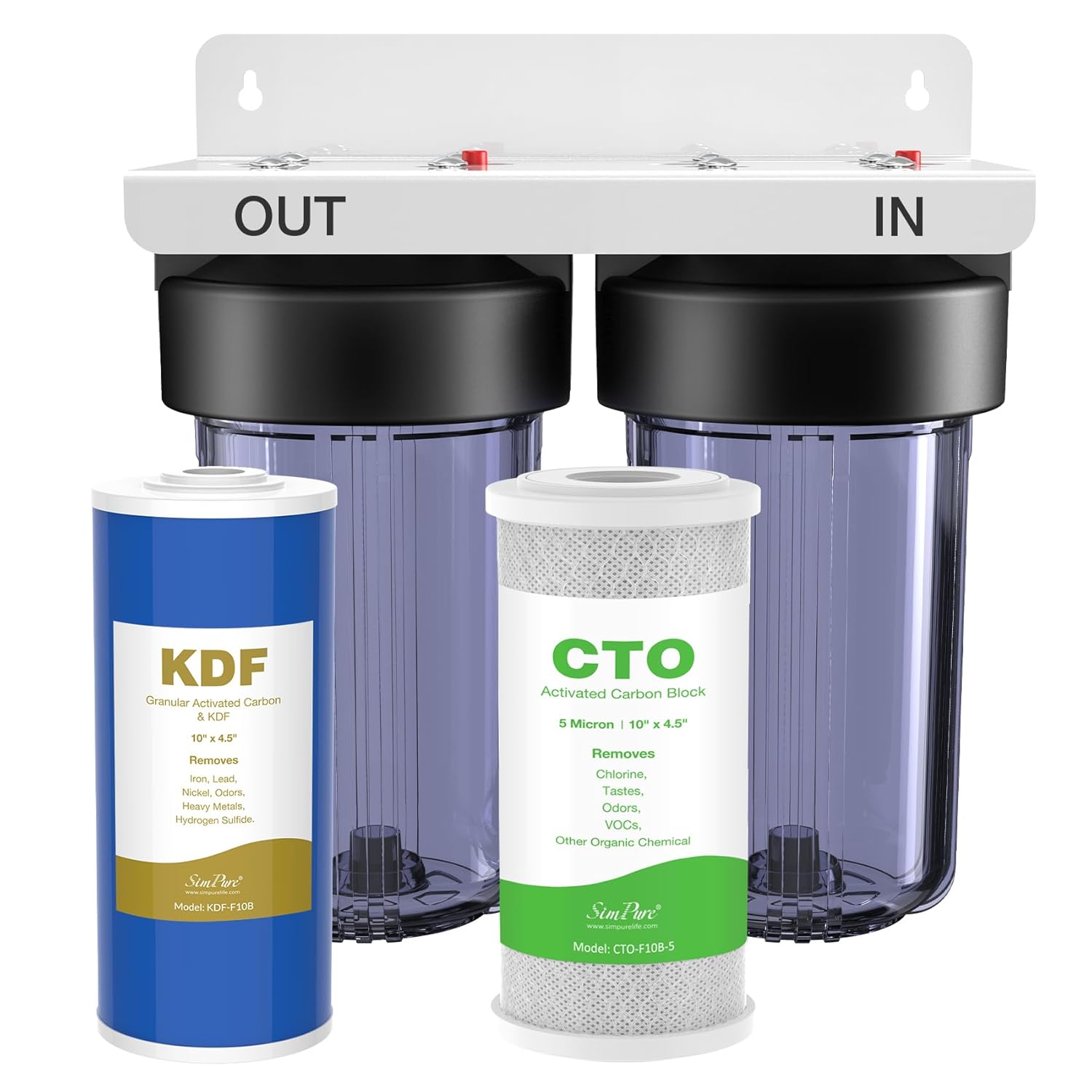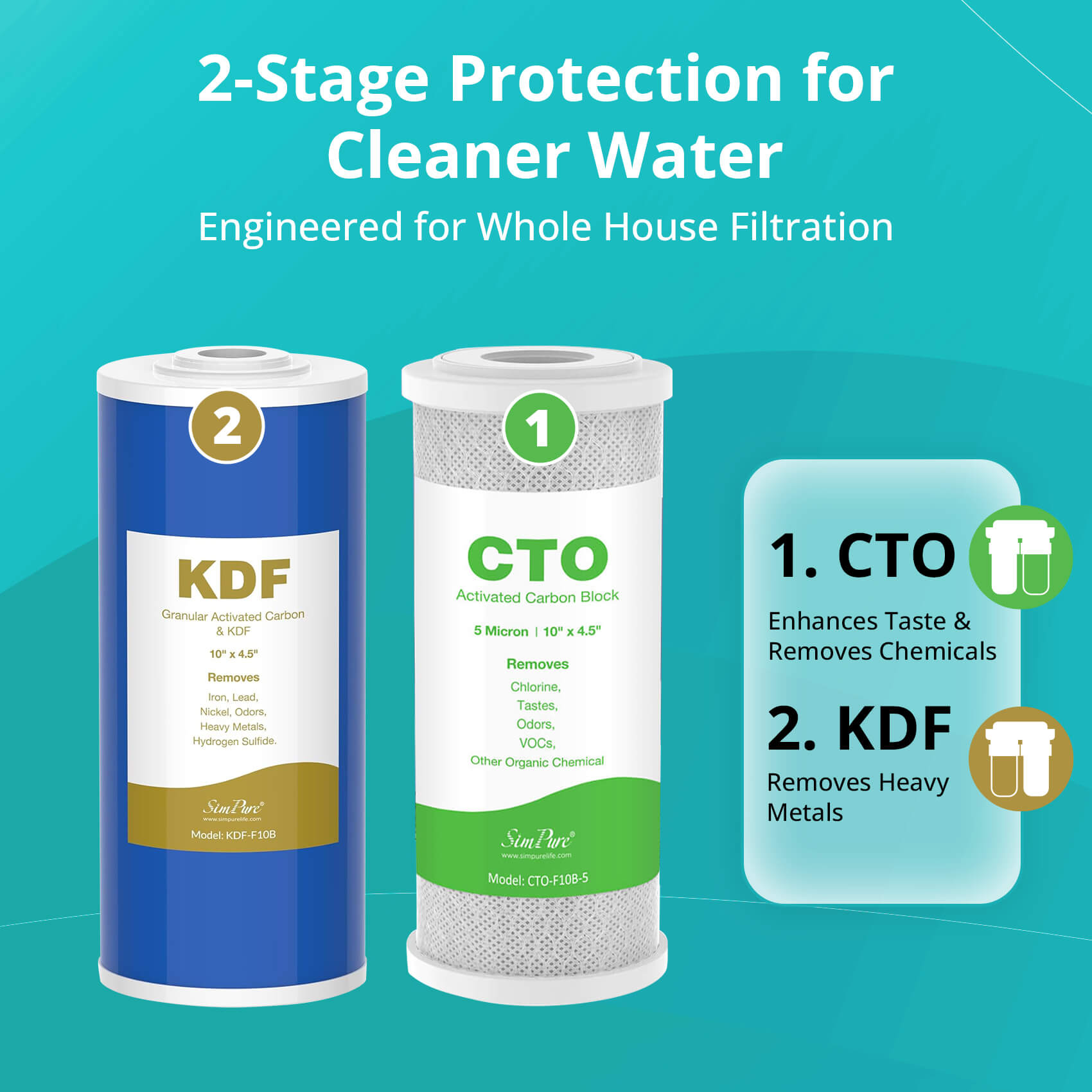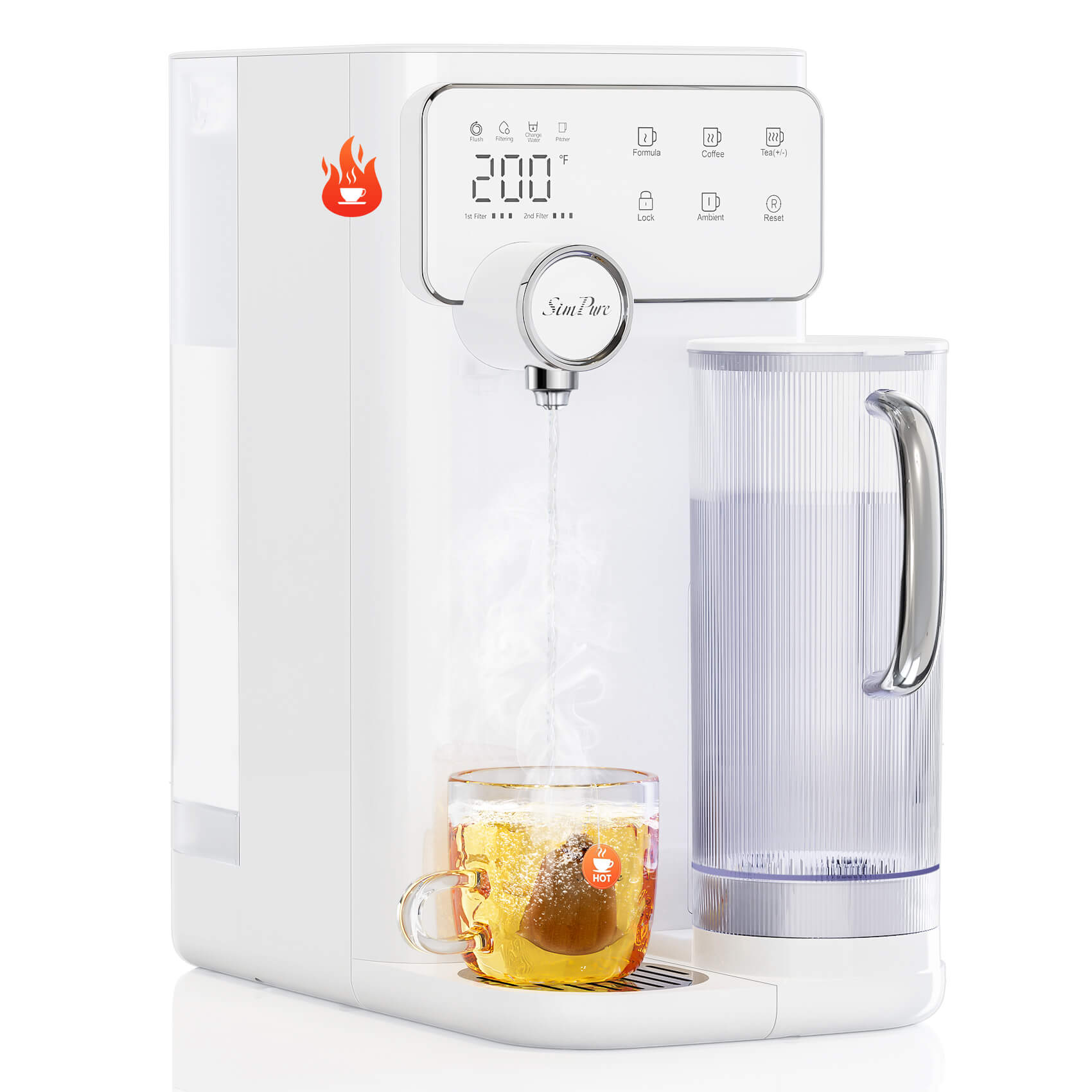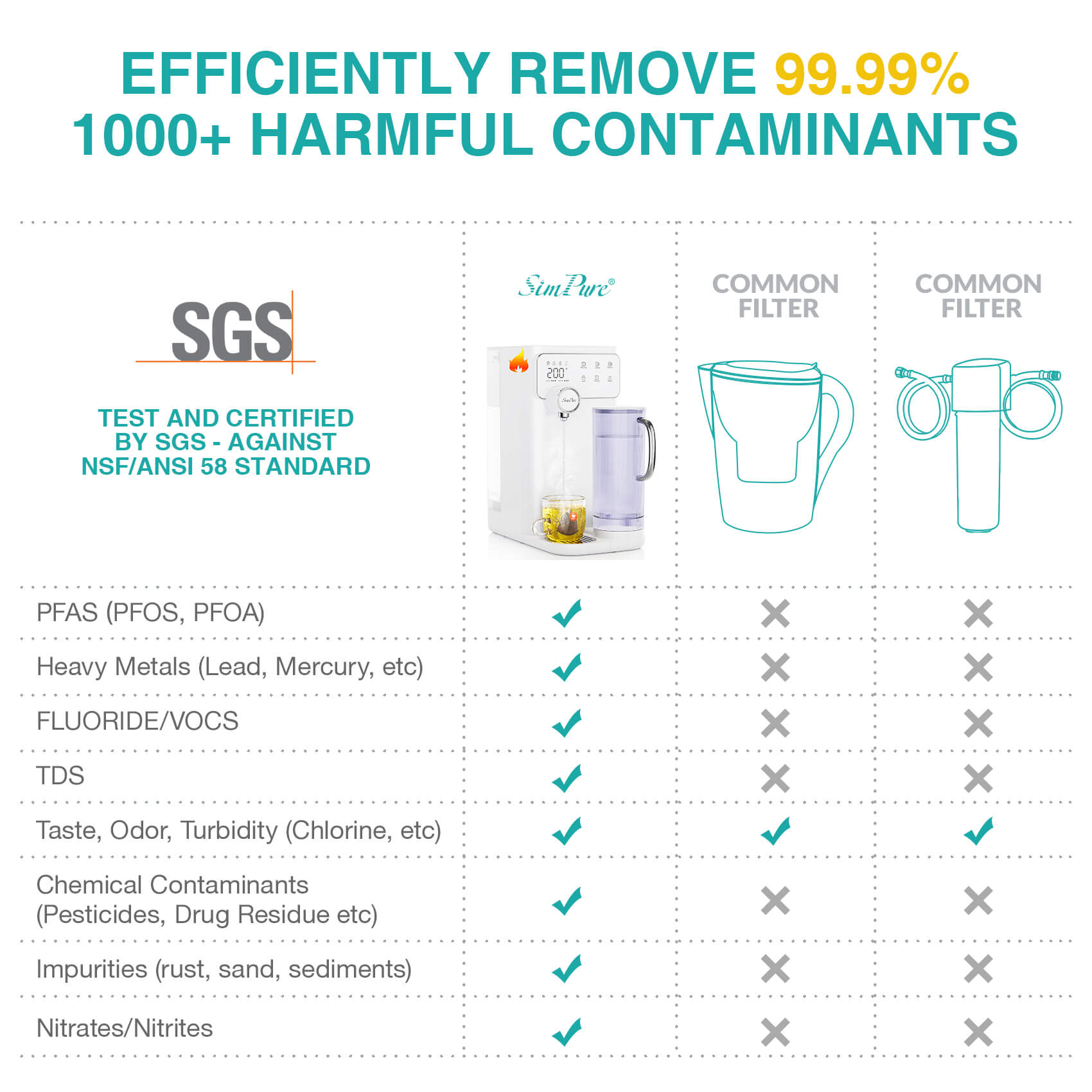Since a lot of our customers asking what water filter removes chlorine from water, in this article SimPure will tell you in detail. Ordinary water filters on the market may not remove chlorine in water, high-quality water filters that containing activated carbon can remove chlorine, but the effect is not very good. Reverse osmos water filter is the best water filter to remove chlorine, which can effectively remove the chlorine in the water. So the reverse osmosis water filter is the best water filter to remove chlorine. Let us see the details!

What Type of Filter Removes Chlorine-Chlorine Removal Effect of Different Water Filters
At present, type of filter technologies that can effectively remove chlorine from water include RO water filter, chlorine ball purifier, activated carbon water filter, KDF water purifier, ultrafiltration water filter, medical stone purification, etc.
1. Maifan stone water filter. Maifan Stone has a purification function, which can absorb some residual chlorine molecules and can remove 5-10% of the residual chlorine of bleaching powder. The service life is generally 1-3 months. The removal effect of residual chlorine is not very good, and the filtered water cannot reach the drinking level.
2. Ultrafiltration water filter. The ultrafiltration membrane has a filtration precision of up to 0.01 micron, which can filter bleaching powder and residual chlorine in a free molecular state, with a residual chlorine removal rate of 10~20% and a long service life.
3. KDF water filter. The high-purity alloy of the KDF water filter has a redox reaction to residual chlorine, and the oxidative residual chlorine can be converted into chlorine ions that are harmless to the human body. The removal rate of residual chlorine is 20-30%, and the service life is 12-24 months.
4. Activated carbon water filter. The super adsorption capacity can absorb most of the bleaching powder and residual chlorine, and the residual chlorine removal rate can reach 90-95%. The higher the iodine number, the higher the adsorption capacity of activated carbon, and the faster the rate of removal of residual chlorine. However, the service life of activated carbon is short, and it can only be used continuously for three weeks. If it is not replaced in time, the effect of water purification will be lost.
5. The residual chlorine ball purifier, the chemical composition is calcium hydrogen sulfite CaSO3, is mainly a chemical reaction, the amount should not be too high, its main function is to remove the residual chlorine in the water body, including combined residual chlorine and free residual chlorine ClO- (hypochlorite ion), HOCl (hypochlorous acid), Cl2 (chlorine gas), etc. transforms the chlorine element of tap water into a harmless or beneficial element for the human body. The elimination rate is close to 100% and the duration is 8-12 months.
6. Reverse osmosis(RO)water filter. Reverse osmosis system water filter adopts international advanced RO membrane technology, pure physical filtration method driven by pressure, adopts a five-stage filtration combination, and the filtration precision is as high as 0.0001 microns. The removal rate of residual chlorine is nearly 100%.

How to Choose a Water Filter That Removes Chlorine?
1. Frontal water filter/Pre-filter. The pre filter is installed behind the water meter at home and is the first line of defense in the home. It can filter out impurities, bacteria, colloids, macromolecular organic matter, and other harmful substances in the water.
If the tap water pipeline in your area is a new type of PE and other plastic pipes, because there are few impurities in the water, a filter-type pre-water purifier is recommended. You don't need to replace the filter element, but you can clean it periodically. If your area is an old-fashioned iron pipeline and there are many impurities in the water, a filter-type pre-water purifier with higher filtration accuracy is recommended, which is a cost-effective product.
2. Terminal water filter. The most common choices for terminal water filters are ultrafiltration water filters and RO reverse osmosis water filters. The difference between the two is that the ultrafiltration core filter element is an ultrafiltration membrane, and the other is an RO membrane. The core filtration of the ultrafiltration water filter has only three stages, PP cotton filter element + ultrafiltration membrane + activated carbon, the fourth stage is an additional PP cotton filter element, and the fifth stage generally has an additional PP cotton filter element and an activated carbon filter element. The advantage of ultrafiltration is that the effluent speed is fast, no wastewater is generated, and the use cost is lower than that of RO, but it cannot filter heavy metals and scale.

There are also three main filters for RO reverse osmosis, pre-PP cotton filter + RO reverse osmosis membrane + activated carbon. The advantage of RO reverse osmosis is that it produces pure water, which is 100% healthy and safe; the disadvantage is that the water outlet is slow, wastewater is generated, and the cost of use is higher than that of ultrafiltration.
If you decide to choose the RO reverse osmosis system, it should be noted that RO water filters are divided into two types: with barrels and without barrels. The advantage of the bucket type is that the use cost is low, the probability of damage to the pump is small, the disadvantage is that the storage bucket occupies a lot of space, requires high installation space, and the water flow is generally small, and the flow rate is about 50 gallons per hour. The advantage of the barrelless type is that the water flow is large, and the flow rate is more than 400 gallons per hour, which requires less installation space, but the large flow rate also means that the RO reverse osmosis membrane loss is high, the use cost will increase, and the probability of water pump damage will increase.
Since free water will have residual chlorine after disinfection, it is very necessary to choose a water filter with a good dechlorination effect. Generally speaking, the chlorine removal effect of reverse osmosis water filters is the best. If you live in a city with hard water, it is recommended that you install an SimPure RO systems at home, which can remove nearly 100% of the chlorine in the water and reach the level of direct drinking.

